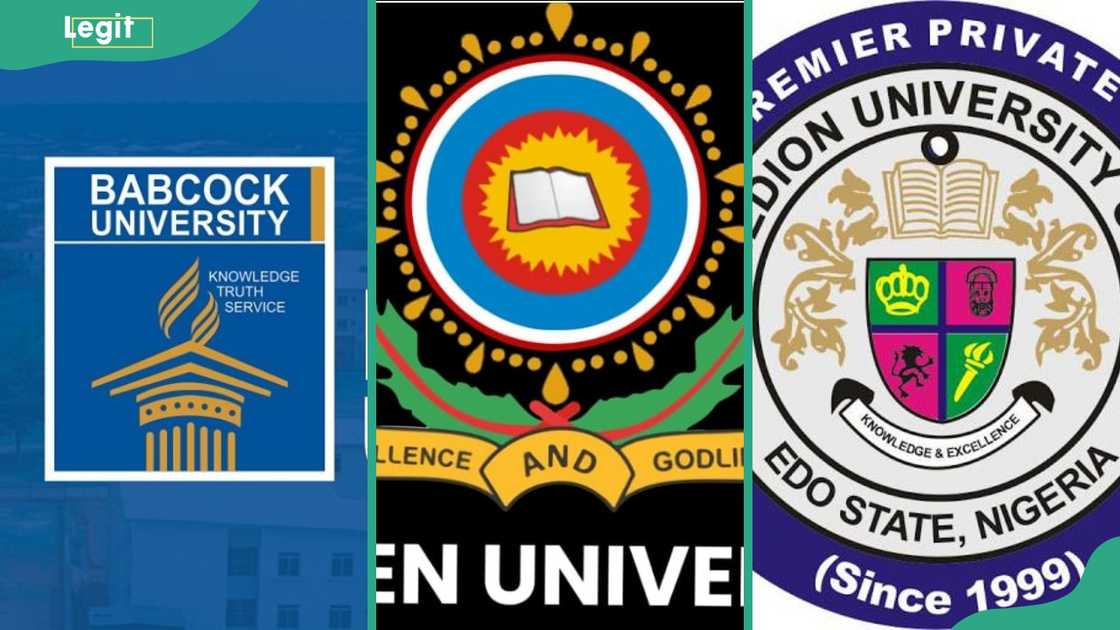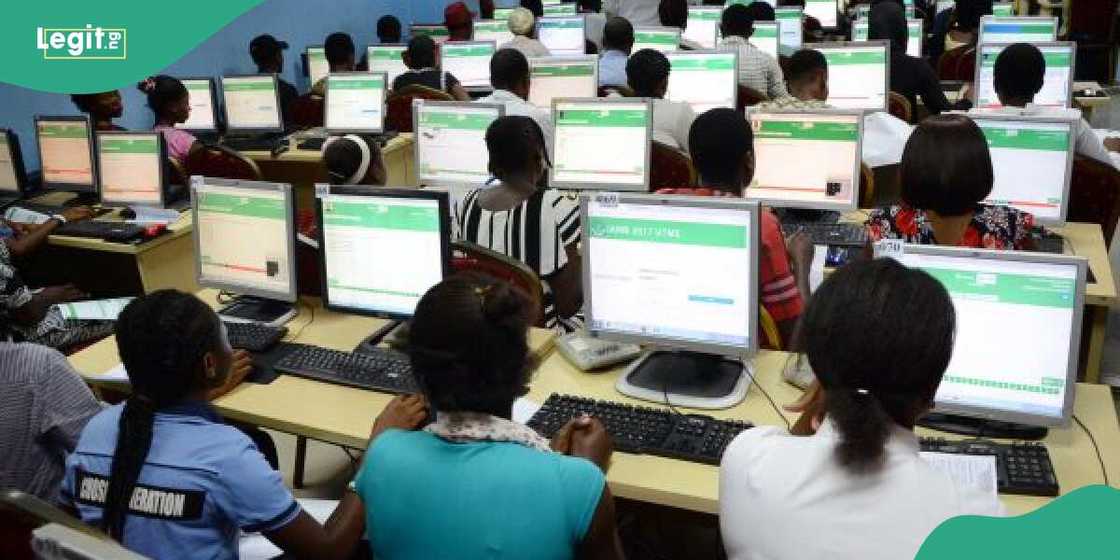Nigerian University Admission Policy Changes

The Joint Admissions and Matriculation Board (JAMB), the regulatory body for admissions into Nigerian higher education institutions since its establishment in 1978, has recently addressed several critical issues impacting students and the integrity of the admission process. Key among these are the rectification of admission statuses for affected candidates, the clarification of the Central Admissions Processing System (CAPS) as the sole legitimate pathway for admissions, the setting of minimum age requirements, and the approval of cut-off marks for the upcoming academic sessions.
A significant development involved the case of Jamiu Basola, a 2024 Civil Engineering graduate of the Federal University of Technology, Akure (FUTA). Basola's academic future was jeopardized when his admission was flagged as "fake" by JAMB, despite him completing his studies with a cumulative grade point average of 4.41. This issue prevented his eligibility for the National Youth Service Corps (NYSC) scheme. His predicament gained public attention after he shared it on social media, alleging that JAMB invalidated his admission seven years after he began his university education. The National Association of Nigerian Students (NANS), after sustained pressure and intervention, confirmed that JAMB reactivated Basola’s portal and included his name on the matriculation list, a mandatory requirement for NYSC mobilization. Basola's case is part of a larger group of 4,845 individuals whose admission statuses had hindered their NYSC registration, many due to omissions on their portals, and who are now set to be cleared by JAMB. It was noted that Basola had initially failed to print his original JAMB result slip in 2017.
To prevent such anomalies, JAMB has strongly reiterated that any admission conducted outside its Central Admissions Processing System (CAPS) is illegal. CAPS was introduced in 2017 to automate and streamline the admission process, eliminating human interference and administrative bottlenecks. While admissions offered outside CAPS between 2017 and 2020 were regularized under a waiver from the then Minister of Education, all admissions outside CAPS since 2020 are now deemed illegal and cannot be regularized. For candidates to be included on the National Matriculation List and ensure their admission is valid, they must complete three mandatory steps: accepting their admission offer within the stipulated period, printing their original JAMB result slip, and printing their original JAMB admission letter. Institutions and individuals found involved in fraudulent practices or attempting to circumvent the CAPS system will face severe sanctions, including withdrawal of institutional assets and prosecution of culpable officers.
JAMB regularization is a critical process for students whose admission was obtained through alternative means (such as diploma, part-time, or pre-degree programs), those without a unique JAMB identifier or admission letter, or those with incorrect/incomplete JAMB records or who have transferred institutions or courses. This process enables students to acquire a valid JAMB registration number, receive an admission letter, apply for course/institution changes, pursue direct entry, and gain access to the NYSC portal. The regularization procedure involves visiting an accredited JAMB center, making payment, confirming details, and submitting the form to the institution's admission office, which then forwards it to JAMB. Part-time students in Nigerian institutions are also required to undergo this regularization process. Students can check their regularization status via the JAMB portal by logging in and accessing the 'Check Admission Status' or 'My JAMB indemnity Form' options.
In a significant policy shift, the Federal Government, through the Minister of Education, Dr. Tunji Alausa, announced at the 2025 policy meeting of JAMB in Abuja that the minimum age for admission into tertiary institutions is now officially pegged at 16 years. This decision reverses the immediate past Minister of Education, Professor Tahir Mamman's, policy which had set the minimum age at 18 years in July 2024. The new policy, effective from the current academic exercise, reflects a balance between cognitive maturity and academic preparedness, and is deemed non-negotiable, requiring strict compliance from all institutions. While provisions exist for legitimate exceptions, such as for gifted children or those with accelerated educational progress, these cases must be clearly demonstrated, documented, and justified. The Ministry also warned against altering age records to circumvent this policy, threatening sanctions. For the Unified Tertiary Matriculation Examination (UTME), candidates must have reached the age of sixteen by August 31, 2025.
During the same 2025 policy meeting, the National Minimum Tolerable UTME Score (NTMUS), or cut-off point, for 2024 admissions into universities was approved at 150. For polytechnics and colleges of education, the cut-off was set at 100, and for colleges of nursing, it was 140. While JAMB and the Minister initially advocated for a higher benchmark of at least 160, institution heads overwhelmingly voted for 150 for universities. Institutions retain the autonomy to set higher cut-off marks than the approved minimums for their specific courses. The 2025 UTME registration commenced on February 3, 2025, and concluded on March 8, 2025, with e-PIN sales ending on March 5, 2025. The e-PIN for UTME and the Direct Entry form cost ₦3,500 each. Eligibility for JAMB registration requires candidates to possess A-Level, National Diploma (ND), National Certificate in Education (NCE), or similar qualifications, meet school and major benchmarks, and submit their registration by the deadline. Registration can only be done at JAMB-accredited Computer-Based Test (CBT) centers. The integration of the National Identification Number (NIN) into the JAMB registration process remains mandatory to combat identity fraud and multiple registrations.
Beyond these policy updates, JAMB also highlighted concerns about the underutilization of existing tertiary institutions, noting that over 120 universities received fewer than 50 applications in the current admission cycle. This indicates a problem of alignment and capacity rather than access, suggesting a need to expand and strengthen existing institutions instead of establishing new ones. The board also reported that Anambra and Lagos states recorded the most incidents of UTME malpractice in 2025, with 80 individuals apprehended for various exam-related offenses ranging from impersonation to biometric fraud.
You may also like...
Diddy's Legal Troubles & Racketeering Trial

Music mogul Sean 'Diddy' Combs was acquitted of sex trafficking and racketeering charges but convicted on transportation...
Thomas Partey Facing Rape & Sexual Assault Charges

Former Arsenal midfielder Thomas Partey has been formally charged with multiple counts of rape and sexual assault by UK ...
Nigerian University Admission Policy Changes

JAMB has clarified its admission policies, rectifying a student's status, reiterating the necessity of its Central Admis...
Ghana's Economic Reforms & Gold Sector Initiatives

Ghana is undertaking a comprehensive economic overhaul with President John Dramani Mahama's 24-Hour Economy and Accelera...
WAFCON 2024 African Women's Football Tournament

The 2024 Women's Africa Cup of Nations opened with thrilling matches, seeing Nigeria's Super Falcons secure a dominant 3...
Emergence & Dynamics of Nigeria's ADC Coalition

A new opposition coalition, led by the African Democratic Congress (ADC), is emerging to challenge President Bola Ahmed ...
Demise of Olubadan of Ibadanland
Oba Owolabi Olakulehin, the 43rd Olubadan of Ibadanland, has died at 90, concluding a life of distinguished service in t...
Death of Nigerian Goalkeeping Legend Peter Rufai

Nigerian football mourns the death of legendary Super Eagles goalkeeper Peter Rufai, who passed away at 61. Known as 'Do...




